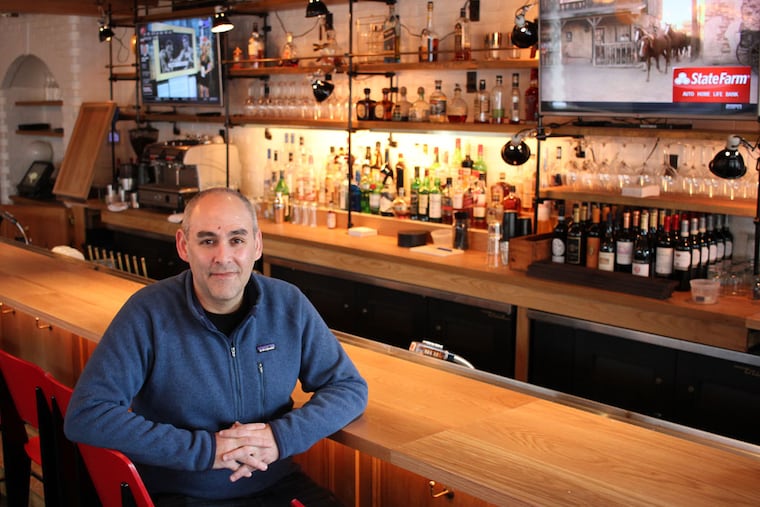Philly restaurant scene hummed above national rates until the pandemic chased away the customers
Restaurant visits started to sink in many American cities by March 9 — for some cities even earlier — but reservations didn’t crash in Philadelphia for another three days.

If online restaurant reservations are any guide, Philadelphia’s hungry customers dined out above national rates as the coronavirus pandemic began spreading across the country, only to see business plummet dramatically over an unprecedented week.
To stem the spread of coronavirus, Mayor Jim Kenney ordered all city restaurants to stop seating people from 5 p.m. Monday through March 27 at least. Restaurants in the city can remain open for takeout and delivery service.
Data from Open Table, the online reservation service, show restaurant visits had started to sink in many U.S. cities by March 9 — in some cities even earlier — but reservations didn’t crash in Philadelphia for three more days. Philadelphia announced its first case of the coronavirus on March 10.
When Kenney recommended that people “go out and have dinner” (and wash their hands) during a news conference Saturday, city restaurants had already lost nearly half of their business, the data show.
“It was at that point you knew it was coming,” said Rob Wasserman, an owner of Rouge, Twenty Manning Grill, and Audrey Claire. Wasserman, who talked with other restaurant owners that day, said business was nearly cut in half around the city. “The frustration is all the employees that work check to check. This is a very terrifying moment when everybody’s trying to go on unemployment at the same time,” he said.
The impact hit Philadelphia’s surrounding counties even earlier; Gov. Tom Wolf requested the closure of nonessential businesses in Montgomery County on Friday, and in Delaware, Bucks, and Chester Counties over the weekend.
Brian Sirhal, an owner of Cantina Feliz in Fort Washington, said his business declined early last week, before Wolf’s directive. His restaurant is across the street from Germantown Academy, which announced March 8 that a student’s family member had tested positive for the virus.
“As soon as the Montco situation hit, we saw a precipitous drop,” Sirhal said. “Then, by Tuesday and Wednesday, it was a desert. Cancellations outnumbered reservations.”
By Monday, the most recent day for data, Philadelphia’s reservations had fallen 85% year over year, a more dramatic downturn than in nearly 40 other cities in the United States and Canada.
Kenney said Monday that he had spoken to restaurant owners who hoped to work together to help their workers. “They are interested in trying to get together to see what they can do to pool some money or find some resources to keep their people paid as long as possible,” he said.
Asked Tuesday about the economic impact of the coronavirus on city businesses, Kenney said it depends in part on how long the shutdown lasts, noting that it may have to continue for eight or more weeks.
No matter the length of the shutdown, Kenney said, “it’s not good.”
Pennsylvania restaurants employ more than 580,000 people, according to John Longstreet, CEO of the Pennsylvania Restaurant and Lodging Association.
“Hospitality is a huge economic engine for the commonwealth,” Longstreet said in a news release Tuesday. The association is pushing for economic relief for businesses, a reduction in unemployment wait time for workers who lose their jobs, and other relief measures.
In March 2019, the city collected $3.8 million in wage tax revenue from the restaurant industry. Restaurants also pay business taxes, their customers pay sales taxes and alcohol taxes, and the city’s tax on soda and sweetened beverages applies to drinks distributed to restaurants.
Wasserman said he remains optimistic that Philadelphia’s restaurants will rebound quickly — perhaps even better than other areas — after the pandemic is under control.
“This will obviously pass,” Wasserman said. “We can take comfort in what’s happening in Asia.”
Staff writer Michael Klein contributed to this article.